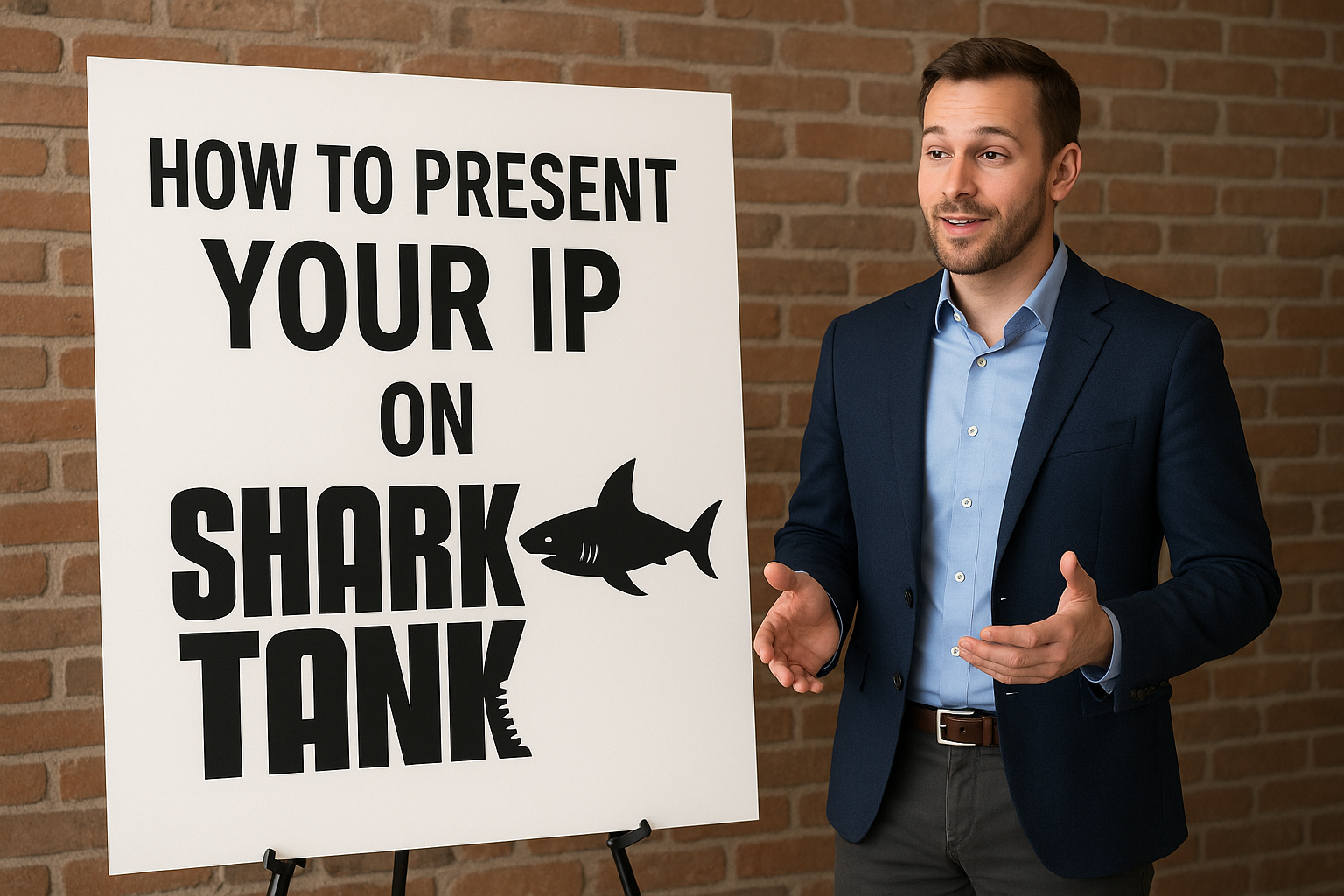📌 Quick Summary
Successfully pitching intellectual property (IP) on Shark Tank means clearly communicating the strength, uniqueness, and protection of your IP. Preparation involves securing patents, trademarks, and copyrights, understanding competitors, and highlighting IP value clearly.
❓ Common Questions & Answers
-
How important is IP protection before appearing on Shark Tank?
Critical. Sharks invest in secure, defensible IP that offers a competitive edge. Lack of proper protection risks losing investment interest. -
What types of IP are most appealing to Shark Tank investors?
Patents (particularly utility), trademarks for branding, and copyrights protecting unique creative assets are highly appealing. -
Can you pitch without a patent?
Yes, but it's risky. Demonstrating strong branding or trade secrets might compensate, but patents significantly strengthen your position. -
How detailed should your IP pitch be?
Brief yet detailed enough to prove IP strength, uniqueness, and defensibility. Sharks value clarity and conciseness.
📜 Step-by-Step Guide
-
Identify and Protect IP Early
Conduct thorough searches, secure provisional patents, and trademark your brand before approaching Shark Tank. -
Understand Your Competition
Research competing IP thoroughly to clearly explain why yours stands apart, demonstrating market value. -
Articulate IP Clearly
Explain your IP simply yet effectively, highlighting competitive advantage, protection scope, and market applicability.
📖 Historical Context
Entrepreneurs pitching IP have historically leveraged patents as key negotiation tools, significantly influencing valuations. A classic example is the Scrub Daddy sponge, whose patent protection increased investor confidence. Historically, strong IP protections have led to greater investment and market dominance.
The importance of IP dates back to the Industrial Revolution when patents protected inventions from theft and imitation, enabling inventors like Edison and Tesla to commercialize groundbreaking technology effectively. This tradition underscores the role IP plays in shaping investor interest even today.
Shark Tank exemplifies modern IP value. Investors consistently prioritize deals with robust intellectual property, recognizing IP as fundamental in differentiating and protecting business investments from market risks and competitors.
🏢 Business Competition Examples
-
Scrub Daddy: Leveraged patented sponge technology to secure investment and became highly profitable.
-
Ring: Doorbell camera technology with strong IP protections attracted investor interest, including Amazon acquisition.
-
Squatty Potty: Demonstrated clear branding and IP defensibility, leading to market dominance post-investment.
💬 Discussion Section
Presenting IP effectively involves more than having patents or trademarks; it's about articulating its real-world value. Entrepreneurs should focus on clearly communicating IP benefits, like market exclusivity and barriers to entry for competitors. Investors on Shark Tank prefer IP that clearly solves customer pain points and offers substantial commercial opportunities.
It's essential to conduct comprehensive IP due diligence before pitching. Missteps, such as incomplete IP protection or vague claims, lead to diminished investor confidence. Businesses must provide concrete evidence of how their IP uniquely positions them within the market, clearly delineating their competitive advantage.
Furthermore, understanding investor concerns about enforceability and international protection is key. Sharks typically consider global scalability potential, and IP that isn’t internationally defensible might limit investment potential. Entrepreneurs should anticipate these concerns, demonstrating how their IP remains strong in broader contexts.
Lastly, effective IP pitches also demonstrate awareness of market trends and customer insights. Investors appreciate when entrepreneurs clearly outline how their IP aligns with future market directions and evolving consumer demands, suggesting strong long-term business viability.
⚖️ The Debate
-
Pro Robust IP Protection: Investors overwhelmingly prefer IP-protected products due to reduced competition risks, higher barriers to entry, and increased potential for sustained market success.
-
Against Overemphasis on IP: Some argue too much reliance on IP stifles innovation, creates over-dependence on legal protections, and diverts resources from core business development.
✅ Key Takeaways
-
Secure robust IP protections early.
-
Clearly communicate IP strengths during pitches.
-
Demonstrate competitive advantages explicitly.
-
Anticipate investor concerns regarding global IP enforceability.
⚠️ Potential Business Hazards
-
Insufficient IP protection.
-
Ambiguous IP claims causing investor distrust.
-
Ignoring global IP scalability.
❌ Myths & Misconceptions
-
Myth: You must have a patent to pitch successfully.
-
Myth: Investors always prefer patented products.
-
Myth: International IP protection isn't crucial initially.
📚 Book & Podcast Recommendations
⚖️ Legal Cases
-
Apple vs. Samsung: Apple Inc. v. Samsung Electronics Co., Ltd.
-
Nike Trademark Case: Nike vs. Skechers
-
Polaroid vs. Kodak Patent Litigation: Polaroid vs. Kodak
📣 Expert Invitation
For detailed guidance or to refine your IP strategy, visit http://inventiveunicorn.com.
🔚 Wrap-Up Conclusion
Presenting IP effectively on Shark Tank can be the difference between funding and rejection. Ensure clear communication, robust protection, and strategic alignment with investor interests to secure your investment and scale your success.











